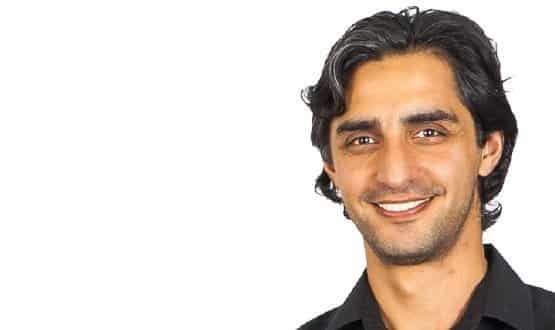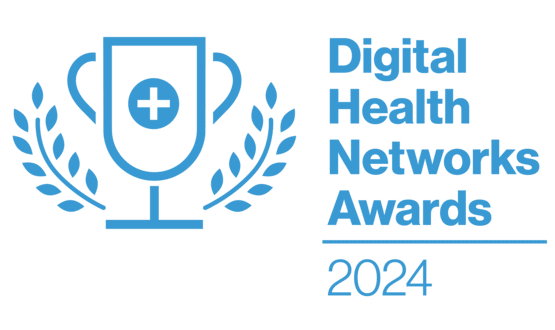CCIO profile: Dr Amir Mehrkar
- 1 September 2014

During the day, Robin Hood dons his tights, picks up his bow and arrows, and works to bring patient data from the information rich to the information poor. At night, he plays in the jungle with Mowgli.
No, this is not a fairytale, but the legend of Dr Amir Mehrkar, chief clinical information officer for the Hampshire Health Record project.
Dr Mehrkar, a Hampshire GP, is a self-proclaimed Robin Hood, whose aim is to make record sharing between NHS organisations, and patients, a reality. In the evening though, he likes to spend time with his five year old son Mowgli, building Lego.
Program your own calculator
Dr Mehrkar has been fascinated by technology since he asked his father for a graphics calculator as a teenager. His father, an engineer, gave his son a Psion handheld computer instead, telling him to use that to program his way to a graphics calculator.
“My dad is a bit like Spock from Star Trek, and taught me about logic. It was my dad who got me into programming. He got me to program a Psion instead of buying a graphics calculator, which is how I got into it,” says Dr Mehrkar.
He went on to study at Sidney Sussex College in Cambridge where, on his first day, he showed up in a cowboy hat – simply because “I didn’t think anyone else would turn up in one.”
He then did a clinical school elective project at St Mary’s Hospital in London, working with nurses to reduce the risk of drug infusion errors by transferring them to a Palm handheld device.
“I found the Palm app InfusiCalc and struck up a relationship with Dr Chris Jones, its author, working from Australia. Over a period of a week we tweaked the app,” he says. “When error rates dropped from 14% to less than 1% I knew I was on the right track.”
The project won the medical school elective prize and Dr Mehrkar was invited to present the findings at the handheld computer workshop at the Royal Society of Medicine.
During his foundation training, he worked at King’s Lynn NHS Foundation Trust where he implemented a pilot for mobile handover of acute surgical admissions on handheld devices. “And then I became a GP,” he says.
The Hampshire Health Record
As a GP, Dr Mehrkar was soon invited to sit on the board of NHS Southampton Clinical Commissioning Group as clinical lead for informatics. In this role, he has led the CCG’s portal development and implemented an urgent care dashboard.
In April last year, he became chief clinical information officer for the Hampshire Health Record, a project that started in 2005 and is led by NHS South Commissioning Support Unit.
The health record is built on Graphnet technology and includes care encounters, GP diagnoses, blood and radiology results, current medication, allergies, clinic letters, discharge information, and some social care information.
The record is in use across primary and secondary care and is currently being rolled out in social care. The project, although hugely successful in NHS terms, has its challenges.
Some of these are related to suppliers, something Dr Mehrkar is not shy about. He thinks the NHS needs to stand up for itself and not succumb to poor IT systems that do not do what they need them to do.
“The days of the supplier lock in are coming to and end and they know it. Anyone not prioritising health and care needs is out."
“I’m 100% behind suppliers who truly want to collaborate, integrate and share information. Patients expect the right information to be available at the right time to the right care professional,” he says.
“Sharing information is also about giving patients visibility and empowering them. We need to increasingly focus on IT delivering services. ”
Indeed, Dr Mehrkar finds it mind-boggling that while scientists have figured out how to separate a particle from its physical properties, the NHS has not even come to terms with record sharing.
“Scientists have created a Quantum Cheshire Cat, separating a neutron from its magnetic field and much of the NHS struggles to share a patient’s record with the relevant clinicians. The silos we have harm their safety because systems don’t talk,” he says.
“Patients can’t tolerate that. It’s not about hearts and minds anymore, it’s about lives and rights. Admittedly, some of this is about ensuring that politically the landscape both centrally, regionally and locally is heading in the same direction, and CCIOs are well placed to make positive waves here.
“Winners and losers will need to be decided by patients. They need to know what isn’t delivering. A significant part of my CCIO role is to champion an information revolution that is patient and ‘client’ centred – we mustn’t forget social care.”
A CCIO for every CSU
Dr Merkhar is also surprised that more clinical commissioners and their support services are not pushing for information sharing projects, and appointing CCIOs to lead them. “I believe that every CSU needs to have a CCIO. I am surprised that no one has got this yet,” he says.
However, he understands that there is scepticism around record sharing; and acknowledges that the the care.data debacle has not exactly made them any easier to explain to the public.
He argues that it is important to tell people what is being shared, and how it can help people, without being distracted by the details of the IT.
As well as being a CCIO, Dr Mehrkar also works on NHS England’s patient online programme and is a national clinical lead for the Health and Social Care Centre’s e-Referral service programme.
“As part of my national role, I want to cater for some of the anxiety around data sharing. I sympathise with colleagues having to get their heads around what it means for their patients.
“We do things by leading as an exemplar, and I can share with patients and other colleagues what we learn. Just because someone else isn’t doing it, doesn’t mean you shouldn’t.”
Learning at the coalface
Dr Mehrkar is passionate and enthusiastic about his CCIO role, and takes it very seriously. He says he is “in awe” of some of the other CCIOs he has come across in the CCIO Leaders Network that EHI has set up to support and promote the role.
“It’s fantastic to be around many experienced CCIOs. The learning curve is steep but everyone is incredibly supportive and if you want to learn there is no shame in asking. I don’t know all the answers by any means – we are all learning how to do this together,” he says.
However, his real aim is to deliver for patients. “I won’t have achieved anything unless we share and give patients access. Done correctly, we stand to have an even closer and trusting relationship with our patients,” he argues.
Despite the importance that he accords to IT, he also says he will “never give up my clinical practice” because: “The coal face is where it’s all happening, so how else do you know you’re doing it right?”
Dr Amir Mehrkar will be talking about his work on the Hampshire Health Record in the Information for Commissioning stream of EHI Live 2014.
Information for Commissioning has moved to EHI Live for the first time this autumn, to reflect the importance of IT and data to the commissioning agenda.
This year’s show takes place at the NEC in Birmingham from 4-5 November, and registration is open now. Visit the EHI Live 2014 website for details.





